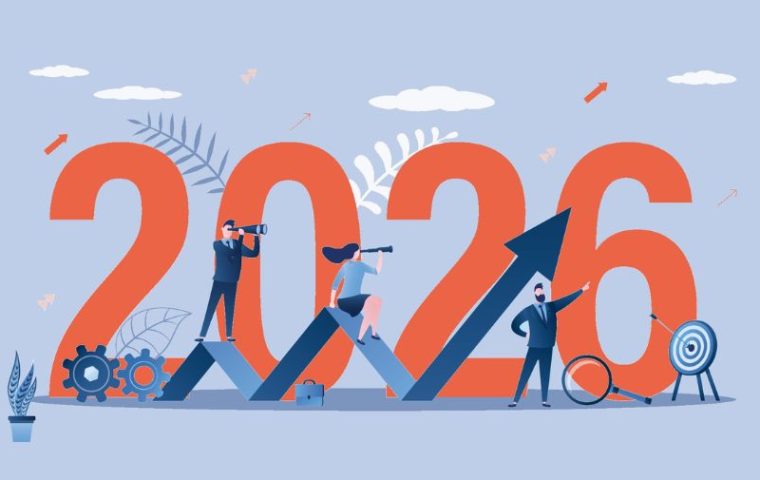During both the selection of job candidates and the evaluation of employees, in addition to job-specific skills and technical knowledge, the HR office also evaluates and tracks the so-called soft skills, also called core skills or transversal skills.
These are certain “attitude traits” that make an employee — whatever their particular role — a good resource for any company, and which, accordingly, should be cultivated and developed on a day-to-day basis.
But which are these soft skills that have such a great importance?
This is a wide and diverse field of study, and a full list could go on almost indefinitely. We believe that we have identified 21 such soft skills that are crucial in any field of work.
The events at the start of 2020 have led to a marked growth in distance working, which is destined to become an integral part of the processes of many companies. As a result, certain soft skills that are particularly useful in this context are now being carefully researched and evaluated.
21 crucially important soft skills
- Interpersonal skills. No employee is an island: one has to be able to interact with others, listen, inspire to take part, and mitigate conflicts. And we are not just talking about one’s relationship with one’s colleagues: to know how to interact with customers and suppliers is a desirable ability for all employees, not only for those who are directly involved in sales, marketing and customer service. After all, our employees are also our best brand ambassadors. This soft skill becomes particularly important when you need to manage a team that works from home on a consistent basis, in order to recreate the collaborative atmosphere of the office. It is an indispensable skill for an HR professional.
- Digital skills. Although they should be considered as a separate category of skills, somewhere between hard and soft, digital skills are so important today that we cannot leave them out of this list. The digital transformation taking place at all levels calls for a wide range of technological skills to manage this change. As a consequence, having a solid foundation is the bare minimum nowadays. To take a deeper look at digital skills, we recommend this article.
- Teamwork. Working as part of a company means first and foremost being able to engage in teamwork, whatever one’s position in the hierarchy. The internal cohesion of a team should not be taken for granted, and can be cultivated thanks to a large number of corporate team building and experiential training activities.
- Communication skills. Whether in chatting with a colleague, sending an e-mail or giving a quick briefing for one’s team, it is essential to be able to communicate clearly and effectively.
- Trustworthiness. Under the wide term “trustworthiness” we can include a large number of “human qualities”: the ability to work independently without supervision, honesty, integrity, punctuality, and everything that would lead us to trust one of our colleagues. This is absolutely essential to maintain good productivity when working from home.
- Research skills. Nowadays, finding the information we need quickly is just as important as possessing it in the first place. Many of our uncertainties can be resolved online if we make the right queries to search engines, our electronic calendar reminds us of our appointments, and in order to gain deeper insights, we can always browse the most prominent trade magazine in our sector. An integral part of this key soft skill is the ability to distinguish reliable sources from those that are less so.
- Time management. All of us have so little time and so many responsibilities that being able to manage the time available and assign the correct priorities has become a key soft skill. It is of such importance that several techniques have been developed to help us make the most of the time we have, such as the Pomodoro technique. Knowing how to manage your time independently is one of the most difficult challenges for many workers when working from home.
- Organization. Being organized does not necessarily mean just having a clean desk and a computer desktop with a reasonable number of icons. This skill refers more to having a personal working method that leads us to not forget our ongoing commitments, projects and appointments.
- Flexibility. In an ever-changing job environment like the present one, one has to have the ability to adapt to novelties and changes and not lose one’s bearings. A flexible employee will not be left behind by changes in best practices, tools and responsibilities.
- Creativity. Creativity is a soft skill that is not only useful for those who work in design, writing, marketing, etc. A creative person is also able to find new solutions to old problems, instead of merely following ways of working that may have become obsolete. At the same time, creativity is essential to get out of crisis situations and deal with major changes quickly, thanks to new and effective ideas.
- Emotional intelligence. Emotional intelligence is the ability to consciously recognize, use, understand and manage one’s own emotions and those of others. People with a high level of emotional intelligence are able to build better relationships at the workplace and have strong self-esteem. The relevant measure is the Emotional Quotient (EQ), as opposed to the Intelligence Quotient (IQ).
- Leadership. Leadership has always been an indispensable skill for managers, who today must be able to lead a team even when working remotely. In modern organizations, which are increasingly horizontal, every employee is required to develop leadership skills, which are necessary in order to know how to lead just as well as one knows how to delegate and collaborate.
- Analytical skills. In order to solve a problem (see the next point on this list), it is crucial to get an in-depth understanding of its nature and its different sides and implications as part of an initial, analytical phase. One should be able to think logically, breaking the problem down into parts and identifying the cause-and-effect relationships.
- Problem solving. Closely related to the soft skill just mentioned, problem solving is the ability that allows us to study and find solutions to a problem whenever we encounter an “obstacle” that we cannot overcome instinctively or through habitual behavior. Is there any job that does not confront one with new “challenges” to overcome, with greater or lesser frequency?
- Multitasking. Often considered a distinctly feminine skill — although research has not yielded any substantial data to support this thesis — multitasking is a soft skill that enables us to perform more than one action, or activity, at the same time.
- Decision making. Faced with a more or less wide range of possibilities, one might be paralyzed by indecision. This is why decision making is considered an important soft skill. One who has it is able to evaluate the pros and cons of each alternative, predict outcomes and choose the option best suited to their objectives.
- Passion and enthusiasm. An employee who puts passion into what they do will not only work better, but often has a beneficial effect on the company environment and on the involvement of their colleagues, who are infected by their enthusiasm.
- Respect and empathy. In an increasingly “multi-” working environment (cultural, religious, etc.), one needs to have respect for everyone, to be able to put oneself in someone else’s shoes and to find points of contact and dialogue.
- Professionalism. It seems obvious that an employee should also be a professional, but this is not always the case. The true professional behaves in a mature and responsible way in every context and situation, and never loses their composure, even when faced with the most intractable client or colleague.
- Personal motivation. Employee motivation shouldn’t be exclusively the responsibility of management, the human resources department or the company in general. An employee should always be ready to give their best and to take initiative when necessary, without needing to be prodded.
- Attention to detail. Attention to detail is a fundamental core skill for various jobs involving checks (for instance, quality controllers or proofreaders), and one that is highly useful in every other field.

What about you? Which soft skills do you consider to be essential, and which ones have you added to your company’s skill matrix?
Copyright: ©Sangoiri/Fotolia














